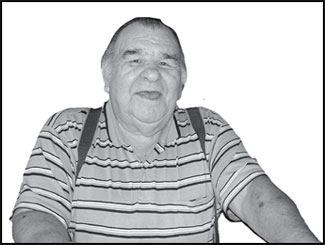- LLBO Home
- Administration
Administration
Child Support Enf.DMVDuluth OfficeEconomic DevelopmentEnrollmentFinancial ServicesFleet ManagementLegal DepartmentMIS
Opioid TreatmentPurchasingSecurityT.E.R.O.TransitTribal DevelopmentTwin Cities OfficeUtilities Commission
Tribal Court
Court HomeCourt FormsCourt FinesCourt Codes
Attorney ProceduresBaMeNim AnishinaabegDiversionTribal Court Awards
Tribal Police
LLTPD HomeAnimal ControlDomestic ViolenceMeth Coordinator Prescription Drug
- Education
- Health Division
Health Programs
AmbulanceBehavioral H.Car Seat ProgramChriopractic, Accupunct.D. Fitness CenterENPEmergency Prep.Environmental HealthFamily Spirit
Food DistributionHome Health CHRMed TransportationNutrition ServicesOccupational HealthPatient BenefitsS.H.I.P.
Elder & Disability Services
Nursing programs
Community ClinicsWadiswan "Nest"WIC
Child & Teen ClinicLL Diabetes ClinicTransform Rez
Health Reports
- Human Services
Addictions & Dependecies Program
A & D ProgramAdolescent OutpatientAhnjiBeMahDis HouseAssessment UnitFamily Violence Prevent
Outpatient TreatmentRecovery MaintenanceRelapse PreventionWomen's Halfway HouseWomen's Services
Child Welfare
Adoption ServicesChild Abuse PreventionChild ProtectionFamily Preservation
Foster CareParent Support ServicesTruancy PreventionYouth Living Skills
Other Human Serviecs Programs
- Res. Services
Reservation Services
EngineeringFacilities ManagementHeavy EquipmentRoads & SurveySanitation
Small Vehicle RepairSolid WasteWell & SepticWell Drilling
Community Services
- Resource Mgmt.
- Tribal Assistance
Tribal Assistance Programs
Services
Elders Chair Interviews
Hartley White Never Loses His Sense of Humor
![]() Printed in The DeBahJiMon December 2003
Printed in The DeBahJiMon December 2003
Interview and photograph by Patsy Gordon
 Even after suffering through a major illness, having a three- way heart bypass and having a near death experience about a year and a half ago, 78 year old Hartley White still hasn’t lost his endless sense of humor that he is so well known for. Read on, and you shall see what I mean.
Even after suffering through a major illness, having a three- way heart bypass and having a near death experience about a year and a half ago, 78 year old Hartley White still hasn’t lost his endless sense of humor that he is so well known for. Read on, and you shall see what I mean.
Hartley was born out of wedlock to Lettie Pearl White Morrow on February 2, 1925 in Onigum, Minnesota. Lettie was a young woman of only 16 when she gave birth to Hartley. When I asked his father’s name, he told me that he would prefer not to disclose that information for that was always his fathers wish. So out of respect to him and his father, I did not divulge any further into the subject.
When Hartley was only one week old, his grandpa and grandma hitched up their team of horses and drove across Leech Lake from Sugar Point to Onigum to pick him and his mother up and take them back home and back across the lake in sub-zero temperatures in a horse drawn sleigh. Hartley jokingly says, “I was the fi rst Indian kid to ever get a sleigh ride when I was born.”
Because Hartley’s grandfather would not allow his daughter to take her young son, citing that she was much to young to care for a child, Hartley was raised by his grandparents.
His grandparents and he “lived off the fat of the land”, said Hartley. They stored fish, deer meat, ducks, and finished a lot of wild rice that they harvested themselves. They also grew and tended a garden every year that added to their livelihood. The crops that were produced from their garden were stored in a pit that had been dug in the ground. To keep the vegetables fresh, the pit was then covered with hay, leaves and dirt. When it came time to retrieve the crops from their storage site and it had been uncovered, they had to take everything out to prevent the rest of it from freezing up. Hartley said, “I don’t know why that happened, but it did.”
“Why is it that kids get bored now days”, Hartley wonders. He and his friends never had trouble finding things to do when they were growing up. He recalled times of making their own skating rink on the ice where they would chop 4 holes in the ice and let the water come up through the holes that would flood a large area and freeze into a nice smooth skating rink. Some days they would skate all day and into the night. When it would start to get dark, they would build a bon fire to warm up by and light up their rink for them. But the elders would caution them at night saying, “there are lots of evil spirits that might be out there, you don’t know who you are playing with”, which would usually bring the kids inside for the rest of the night. He spoke of riding horses, and even breaking them to ride, especially during the summer months. He said to me, “You know who the two biggest tomboys were – your mom and her sister, Ruby.” He said even they used to break the horses to ride.
Hartley went to school in Sugar Point, Federal Dam, and Boy River. He quit school at 16 years old so he could go to work and help support his grandparents, who were by then getting up there in age. He said they just couldn’t make it with receiving only $15.00 a month from welfare. He went on to explain though, that $15.00 back then is equivalent to approximately what $50.00 is worth today. After dropping out of high school, Hartley went to work for A.W. Fairbanks in Sugar Point cutting wood, making a mere 40 cents an hour. Hartley said, “Them were top wages then!” During his school years is also when Hartley met his future wife, who you shall read more about later in his story.
At 17 years old, Hartley joined the Civil Conservation Corp and stayed with them for 6 months. Here, he earned $30.00 a month. In 1943, and at 18 years old, he joined the Navy. After serving his time in boot camp and doing other short stints within the states, he was sent to the South Pacific where he served 32 months of his enlisted time. Hartley’s grandpa was fighting mad over this! “I don’t know why our boys (Indian boys) are being sent to fight!” he said. Although he wasn’t sure of what the name of the treaty was he said there was supposed to be a signed treaty somewhere in Congress that stated “no Indian was supposed to leave this country to fight on foreign soil”. The elders living in Sugar Point during that time used to have discussions that centered around this treaty also.
After being honorably discharged in 1947, Hartley returned home only to meet up again with his childhood sweetheart, Lillian Paper. Imagine how surprised they were when they ran into each other again in a blueberry patch! This reunion led to their wedding in 1947. The couple stayed married for 52 years until Lillian passed away in 1999. Together they had 7 children, 5 girls and 2 boys. When I asked Hartley how many grandkids he had, he asked his daughter Shirley, “Oh my God, how many grandkids have I got?” It took Shirley awhile to count them all up, but after pondering and adding for some time, she successfully came up with a few different figures for us. Today, Hartley is proud of his 24 grandchildren, 17 great grandchildren, and his 2 great great grandchildren.
His advice to his young 14 year old granddaughter who lives with him and other young kids like her is to, “Enjoy life now while you can without having kids right away!” He notices how now days kids are having kids and he wonders what ever happened to family planning! In addition to his granddaughter, his daughter Shirley and her husband also live with Hartley. Hartley says that Shirley is now his primary caregiver.
In April of 2002, Hartley start
ed getting short winded and getting dizzy spells. He went to see his doctor who sent him to the U of M for an angiogram. This is a test done to the heart. The test detected blockage in 3 main arteries leading to his heart, of them being 100% blocked and the other two not far behind. The doctors immediately put him into surgery and performed a triple bypass. Thinking that he was well on his way to recovery, and two days before being sent home, Hartley said he sneezed! This was just the start of even more serious medical problems for him. The doctors ordered an xray of his chest that showed the sneeze had caused the inside stitches, that lay beneath his skin and next to his ailing heart, to rip apart. At this point, the doctors told him there was nothing more they could do. After a few more days in the hospital, they sent Hartley home. They sent pain medication with him to try and keep him pain free and comfortable.
After five days at home, Hartley began to have bouts of passing out, which sent him back to the U of M in Minneapolis. The next six weeks were a complete loss of time to him. He doesn’t remember a thing! But his friends are quick to remind him of some of that time he lost. They told him that when they (his Non-Indian friends) came to visit him from his hometown, he would start tapping on his mattress (like it was a drum) and singing and told his visitors to “Dance!” The illness left him extremely weak and wobbly. Another 6 weeks followed where he was sent to an Amnesia Center/Nursing home for rehabilitation.
Today, Hartley is living at home, happy and healthy again! He says, “I think the Creator had a lot to do with it! It just wasn’t my time yet, I have things left here to do yet, and one of those things might be to just keep people laughing.” He finished by telling me that he had a near death experience that resulted from him being so close to death due to his fading health. Hartley said, “Patsy, even today sometimes, I wish I wouldn’t have come back – it’s so beautiful up there!”
Many of you may remember that Hartley served as the Chairman for the Leech Lake Band of Ojibwe for 12 years, from 1976 to 1988.


